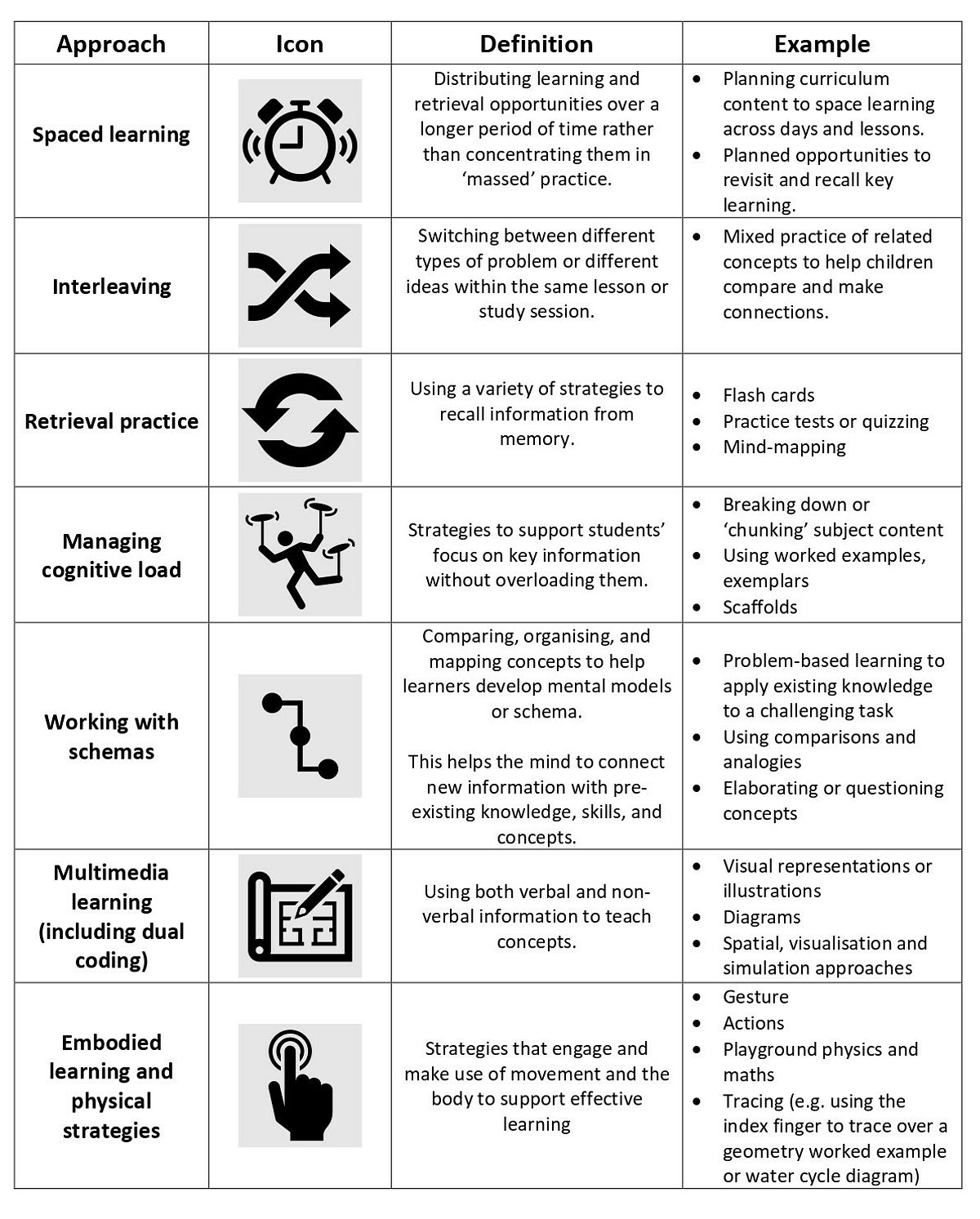We’re a nation of quiz lovers, whether it’s sitting on the sofa enjoying programmes like ‘Who Wants to be a Millionaire?’, ‘The Chase’, ‘Pointless’, or with friends at the pub. They were even a weekly ‘social’ highlight over Zoom during lockdown.
Quizzes are also popular in classrooms across the country. Sadly, there are no cash prizes up for grabs, but low-stakes quizzes are regularly being used as a form of retrieval practice across primary and secondary schools.
But they are not the only approach cognitive science can offer! There are many ways in which cognitive science research can help teachers and school leaders understand how children learn.
Cognitive science: more than quizzing!
The EEF’s Cognitive Science Approaches in the Classroom evidence review summarises the best available evidence from 295 studies to help teachers and school leaders apply this research in practice.
The review focusses on seven different cognitive science approaches. These include:

Although cognitive science is being used increasingly to inform interventions, practice, and policy in education, there are still many questions to be answered.
In particular, many studies were not delivered under typical school conditions and so the research base as applied to classrooms in England is relatively limited. This is especially true for younger children and primary settings, as well as curriculum subjects other than maths and science.
If we are to avoid lethal mutations, we need to know more about the effectiveness of approaches when used in different subjects and age phases. In the subjects or phases where evidence is harder to find, it is useful to consider the theory behind the approaches and think about how this might be translated to suit the context.
To help busy teachers and school leaders make informed decisions about which approaches might be best suited to their context, the EEF’s Cognitive Science Approaches in the Classroom evidence review shares useful details about where the evidence has come from.
So, if you want to be a ‘Mastermind’ of how children learn, make cognitive science your ‘specialist subject’!
